
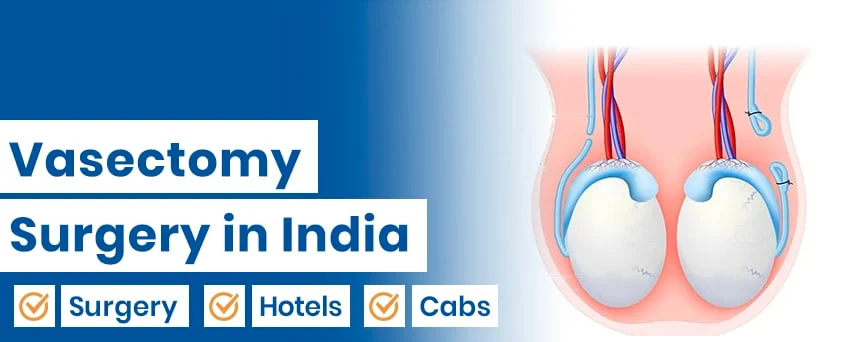
A vasectomy is a safe and permanent birth control surgery chosen by men who decide not to have children. It is one of the most effective methods of male contraception, involving the cutting or sealing of the vas deferens to stop sperm from mixing with semen. The procedure is minimally invasive, quick, and requires only a short recovery period.
Many men from African countries travel for vasectomy surgery in India due to the country's affordable treatment costs, experienced surgeons, and high-quality healthcare facilities. Indian hospitals provide modern surgical techniques, strict privacy standards, and comprehensive international patient support. With shorter waiting times and english-speaking experts, India provides a safe option for African patients needing vasectomy treatment.
Sperm, formed in the male testes, are crucial reproductive cells. They are responsible for fertilizing the female egg. Sperm travels from the testes to the epididymis. It is connected with the ejaculatory duct through the vas deferens. Upon ejaculation, sperm mixes with the seminal fluid produced by the seminal vesicles to form semen.
The semen flows from the urethra to the penis, and the semen comprising sperm can result in pregnancy. However, some couples or men may not want to have children. Vasectomy helps block sperm from mixing with seminal fluid during ejaculation.
As a result, the semen will exist sans sperm. The male body continues to produce sperms, which get soaked up by the body. This procedure is a widely used birth control option among men.
You may encounter different types of vasectomy, conventional and no-scalpel. While each technique has the same goal, they differ minutely, such as the latter is a non-invasive vasectomy.
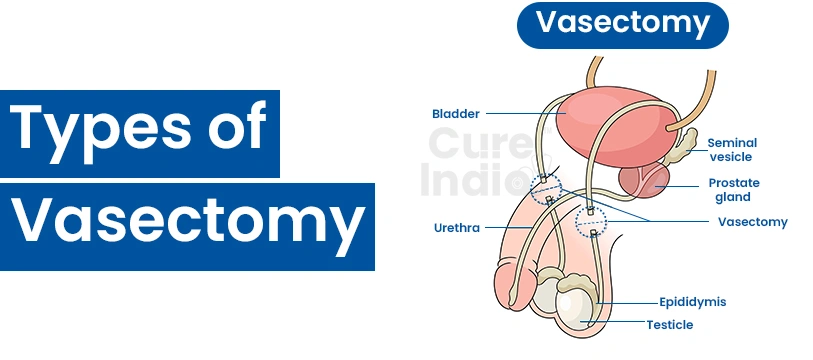
The traditional type utilizes a scalpel for creating incisions in the testicles. It involves a single incision in the scrotum's center or double incisions on either side. These cuts are generally 1.5 to 3.0 centimeters long and require sutures to close them. The conventional procedure does not involve any specially configured instruments.
The no scalpel vasectomy is less intrusive than conventional procedures. It uses specially crafted tools to create tiny openings in the scrotum. Hence, it also has the name keyhole. Here, the incision length measures below 10 mm with no requirement for sutures. The Vas dissector and NSV ring clamp are crucial instruments for the procedure.
NSV generally involves making an opening. However, the surgeon can create up to two incisions for multiple procedures. These could be to close or eliminate pieces of ductus deferens. It is a non-invasive vasectomy that most men commonly decide on.
The cost of a vasectomy in India is around $800 to $1,000, depending on factors such as the type of procedure (conventional or no‑scalpel), the hospital, the surgeon’s experience, and any pre‑ or post‑operative care required. The table below mentions the average cost of vasectomy in India with CureIndia along with the required stay in the country:
| Treatment Name | Cost in India | Stay in India |
|---|---|---|
| Vasectomy Surgery in India | $800 - $1,000 | 1 - 2 Days |
A vasectomy procedure is a reliable and highly effective choice of birth control. It is suitable for men who do not want any children in the future. Men often choose this male sterilization surgery to stop the sperm from mixing into the semen and prevent unplanned pregnancy.
Individuals choose to have vasectomy for numerous reasons. This male sterilization option has low complication risks and side effects. Besides effectiveness, these factors contribute to its appeal. Moreover, the surgery cost is way less than female sterilization. A cheap vasectomy is undoubtedly a better solution.
Hence, you do not need to take precautions for birth control during sexual intercourse, such as using condoms.
Patients selecting between various types of vasectomy will encounter numerous benefits. Male sterilization can be convenient, super effective, and a long-lasting birth control. You and your partner can reduce the stress of dealing with accidental conception and improve your sexual life. Let's consider these benefits up close:
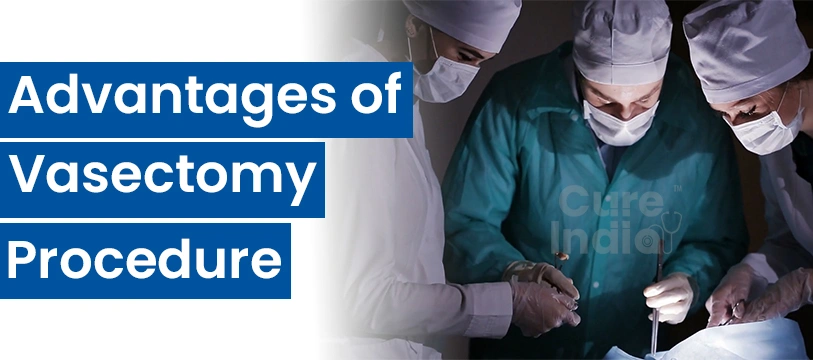
From all the birth control solutions, vasectomies offer better results and are everlasting. It provides over 99% pregnancy prevention effectiveness. Since it is permanent, there are no chances of rocking the boat. Hence, you get to prevent conception all your lives.
Forget about the mandatory visits to the pharmacy or the need to buy medications or use condoms. Your health provider confirms your semen no longer contains sperm. You no longer need to go through all the fuss to prevent pregnancy.
With vasectomies, you do not have to use or put anything before or during sex. Hence, you can be intimate with your partner without interruptions. You and your partner get to engage in sexual activity without thinking about getting pregnant.
Deciding on a vasectomy is a big step. It is a permanent form of birth control and should be entrusted to experienced urologists only. In India, there are many highly qualified specialists who specialise in male reproductive health and sterilisation procedures. Whether you are looking for a reliable procedure for family planning or long-term reproductive choice, selecting a well-experienced doctor can make all the difference in comfort, safety, and results. Below are some of the top vasectomy doctors in India:
Dr. Gautam Banga is a leading urological surgeon in India, with around 20 years of experience in male reproductive surgeries, including vasectomy. Known for his expertise in penile and urethral surgeries, cosmetic urology, and male sterilisation procedures, Dr. Banga offers personalised treatment plans that are tailored to the needs of every patient.
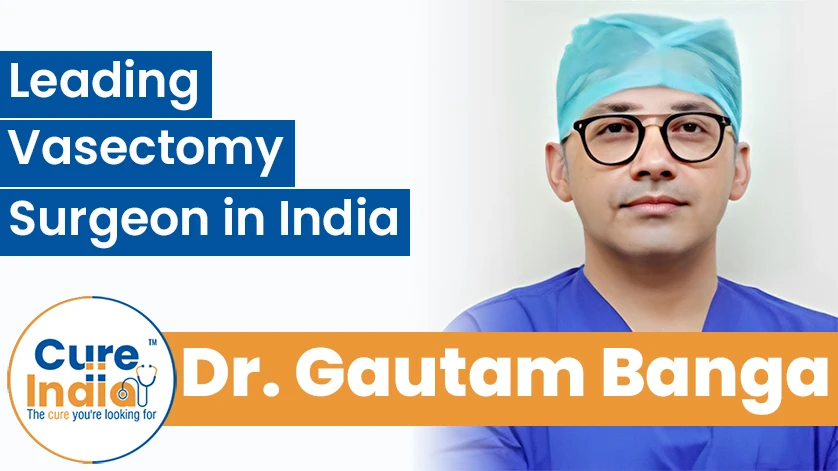
With over 25 years of experience, Dr. Vineet Malhotra is a urology specialist specialising in performing urological procedures, including endourology, reconstructive procedures, laparoscopy and vasectomy. With a steady track record and extensive experience, he is viewed among the most-preferred doctors for male sterilisation procedures in India.
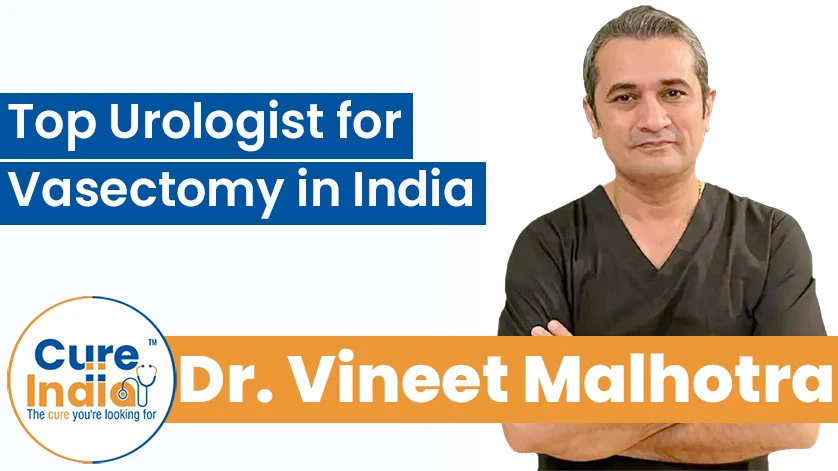
If you're in need of the best doctor to perform a no-scalpel vasectomy for you in India, Dr. Vijayant Govinda Gupta is the one. He is a highly qualified urologist and andrologist known for offering advanced & minimally invasive No‑scalpel vasectomy. His training includes a master of surgery and a specialised MCh in Urology. Over the years, he has performed thousands of successful vasectomy procedures.
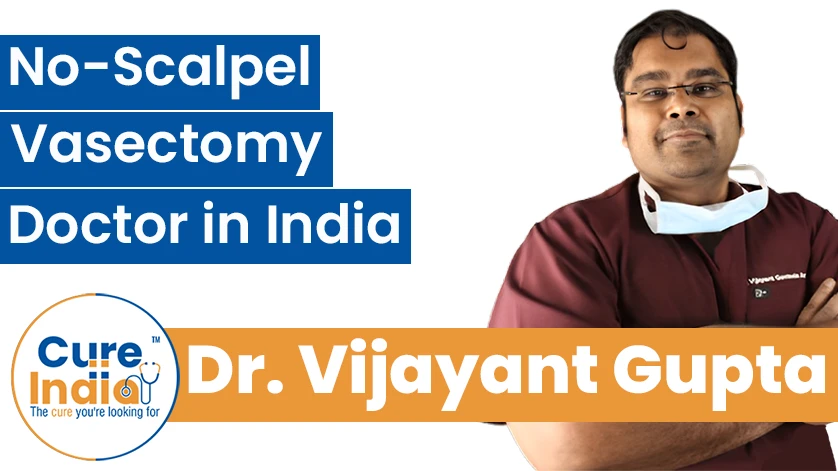
Dr. Anil Kumar Gulia is listed among the top doctors offering vasectomy services in India. With a focus on male sterilisation and urological health, Dr. Gulia provides patients with comprehensive guidance on their choice of procedure, expectations, and recovery. His areas of expertise involve male sterilisation, reconstructive urology and uro-oncological treatments.
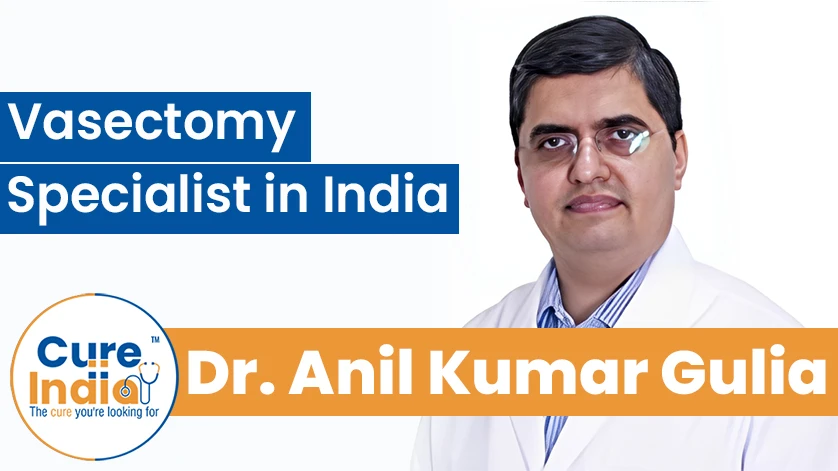
Before having the surgery, you will have a consultation with a reliable healthcare provider.
During the consultation, your medical history, allergies, and skin diseases will be discussed. This includes information about the use of medicines, earlier surgeries or injuries regarding the scrotum and genitals, and recent UTIs.
You will further sign a consent form to allow the doctor to conduct the vasectomy procedure.
Before agreeing, it is important to understand all the details about the surgery. Address any concerning issues before forming a decision.
Avoid consuming blood thinners before the procedure. If you consume pain killers, let your doctor know beforehand.
Other preparations include shaving off the hair covering your scrotal skin. Completely clean the pubic hair covering the shaft of your penis up to the scrotum. Using a disposable razor is advisable. Thoroughly wash the groin and scrotum area to avoid infections.
The process comprises either no scalpel vasectomy or conventional vasectomy. Both surgeries occur in the health professional's office or an outpatient clinic. They typically take about ten to thirty minutes. For a cheap vasectomy, it is best to opt for the procedure in the practitioner's office. The doctor will follow the given steps to carry out the approach:

The surgeons will try their best to make the process of vasectomy safe. However, it is typical to have mild swelling, bruising, pain, and discomfort post-surgery. Generally, you must give yourself a few days before the wound starts healing. Your healthcare professional will provide specific directions for better recovery:
People who undergo male sterilization may think about reversing a vasectomy for numerous reasons. Many suffer child loss and hope to get pregnant again. Some change their mind or remarry. Others may want to treat testicular pain.
The procedure involves reconnecting the long tubes called vas deferens. The sperm travels from the testes and mixes with the semen through it. Successfully reversing a vasectomy will result in semen comprising sperm, ensuring pregnancy.
After the surgery, your chances of impregnating your partner will be between 30% - 90% based on procedure type. The success rate of the surgery depends on the following factors:


Suffering from Erectile Dysfunction
Open up and get treated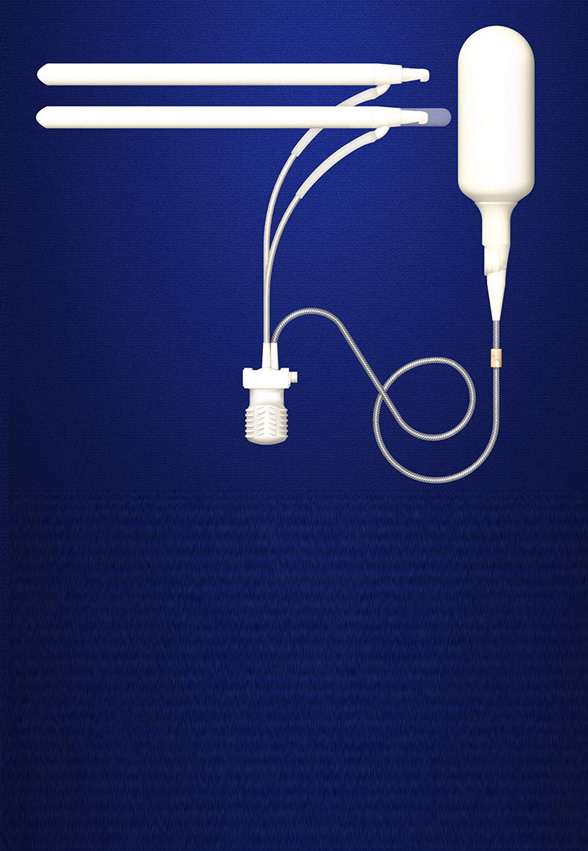
Semi Rigid and Inflatable Penile Implants
Get back the Erection
Insecure about your size
Get Penile Augmentation